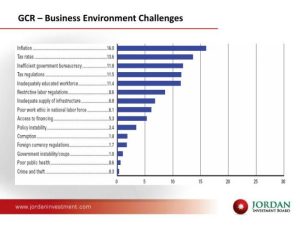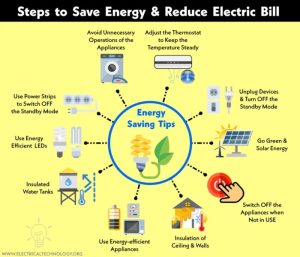Get ready to dive into the world of energy contracts for businesses, where savings and efficiency go hand in hand. From negotiating the best deals to understanding the benefits, we’ve got you covered!
As we unravel the intricacies of energy contracts for businesses, you’ll discover the key factors that can make or break a deal, and why long-term commitments might just be the way to go.
Energy Contracts for Businesses
In today’s competitive business landscape, managing costs is crucial for maintaining profitability. One significant cost that businesses need to consider is energy expenses. Energy contracts play a vital role in helping businesses effectively manage and budget for their energy needs.
Types of Energy Contracts
- Fixed-rate contracts: These contracts lock in a set price for energy over a specified period, providing stability and predictability for budgeting.
- Variable-rate contracts: Prices fluctuate based on market conditions, offering potential savings during low-demand periods but also risk during price spikes.
- Index contracts: Prices are tied to a specific index, such as a commodity market, ensuring pricing reflects market trends.
Key Factors in Negotiating Energy Contracts
- Energy consumption patterns: Understanding when and how much energy is used can help tailor contracts to specific needs.
- Contract length: Businesses should consider their risk tolerance and budgeting preferences when deciding between short-term and long-term contracts.
- Renewable energy options: With a growing focus on sustainability, businesses may explore contracts that include renewable energy sources.
Benefits of Long-term versus Short-term Contracts
- Long-term contracts offer stability and protection against price fluctuations, providing budget predictability over an extended period.
- Short-term contracts may allow for taking advantage of market dips for potential cost savings but come with the risk of price spikes.
- Flexibility in contract terms, such as addendums or renegotiations, can also be a key benefit for businesses looking to adapt to changing energy needs.
Chemicals and Allied Products
Chemicals and allied products play a crucial role in various industries, serving as the building blocks for manufacturing processes and essential components in the production of goods. These substances are used in a wide range of applications, from pharmaceuticals and agriculture to automotive and electronics.
Significance of Chemicals in Manufacturing
Chemicals are vital in the manufacturing industry for producing a wide array of products. Some common chemicals used in manufacturing processes include:
- Acids and bases
- Solvents
- Dyes and pigments
- Polymer resins
- Catalysts
Impact of Regulations on Chemical Production
Regulations play a significant role in the production and distribution of chemicals, ensuring safety, environmental protection, and compliance with industry standards. Businesses must adhere to regulations governing the handling, storage, transportation, and disposal of chemicals to mitigate risks and prevent harm to the environment and human health.
Safe Handling and Disposal of Chemicals
To ensure the safe handling and disposal of chemicals, businesses can implement the following practices:
- Provide proper training to employees on handling procedures
- Use appropriate personal protective equipment
- Store chemicals in designated areas with proper labeling
- Implement spill containment measures
- Dispose of chemicals following regulatory guidelines
Construction and Maintenance

Construction and maintenance services play a crucial role in the overall operations of businesses, especially when it comes to optimizing energy usage and reducing costs. By ensuring that commercial properties are well-built and properly maintained, businesses can create a more energy-efficient environment that leads to long-term savings and sustainability.
Essential Construction and Maintenance Tasks
- Regular HVAC system inspections and maintenance to ensure optimal performance and energy efficiency.
- Proper insulation and sealing of windows, doors, and other openings to prevent energy loss.
- Upgrading to energy-efficient lighting fixtures and bulbs to reduce electricity consumption.
- Regular roof inspections and repairs to prevent leaks and improve insulation.
- Implementing smart building technologies, such as automated systems for lighting and temperature control.
Optimizing Energy Usage through Construction and Maintenance
- By conducting energy audits and implementing energy-saving upgrades during construction or renovation, businesses can reduce their overall energy consumption.
- Regular maintenance of equipment and systems helps identify and address inefficiencies before they lead to increased energy costs.
- Investing in sustainable construction materials and practices can lead to long-term energy savings and environmental benefits.
Benefits of Proactive Maintenance
- Prevents costly breakdowns and repairs, which can result in higher energy usage and expenses.
- Increases the lifespan of equipment and systems, reducing the need for frequent replacements and associated energy costs.
- Improves overall energy efficiency and performance, leading to lower utility bills and a more sustainable business operation.
Consumer Goods and Services
In the realm of consumer goods and services, energy contracts play a crucial role in ensuring efficient production and distribution processes. Let’s explore how businesses in this sector can benefit from strategic energy management.
Energy-Intensive Processes in Consumer Goods Manufacturing
- Manufacturing of textiles and apparel: The production of fabrics, clothing, and footwear requires significant energy inputs for processes like spinning, weaving, dyeing, and finishing.
- Food and beverage processing: From cooking and baking to refrigeration and packaging, the food industry relies heavily on energy-intensive operations to bring products to market.
- Plastics and packaging: The creation of plastic products and packaging materials involves energy-intensive processes like extrusion, molding, and printing.
Benefits of Renewable Energy Contracts for Consumer Goods Businesses
- Cost savings: Renewable energy sources like solar and wind power can help businesses reduce their electricity bills and overall operational expenses.
- Sustainability branding: Adopting renewable energy solutions can enhance a company’s reputation and appeal to environmentally conscious consumers.
- Regulatory compliance: With increasing focus on environmental regulations, businesses in the consumer goods sector can stay ahead by investing in renewable energy.
Importance of Energy Efficiency in Consumer Goods Production
- Reduced carbon footprint: Energy-efficient practices help minimize greenhouse gas emissions associated with manufacturing and distribution processes.
- Cost-effectiveness: Improving energy efficiency can lead to long-term cost savings through reduced energy consumption and waste.
- Supply chain sustainability: Energy-efficient operations contribute to a more sustainable and resilient supply chain, enhancing overall business continuity.
Business Energy

Business energy refers to the electricity and gas used by companies to power their operations. It plays a significant role in the overall operational costs of businesses, impacting their bottom line. Managing energy consumption effectively is crucial for businesses to stay competitive in the market and reduce overhead expenses.
Energy Management Strategies
- Implementing energy-efficient technologies and equipment to reduce energy consumption.
- Setting up automated systems to monitor and control energy usage in real-time.
- Educating employees on energy-saving practices and encouraging them to participate in conservation efforts.
- Optimizing building designs for natural lighting and ventilation to reduce the need for artificial lighting and cooling.
Role of Energy Audits
An energy audit is a comprehensive assessment of a company’s energy usage and efficiency. It helps identify areas where energy is being wasted and provides recommendations for improvements to reduce consumption and costs.
Benefits of Renewable Energy Sources
Investing in renewable energy sources, such as solar or wind power, can offer numerous benefits for businesses, including:
- Cost savings in the long run through reduced reliance on traditional energy sources.
- Environmental benefits by reducing carbon emissions and promoting sustainability.
- Enhanced brand reputation and corporate social responsibility by demonstrating a commitment to green practices.
Business Environment
In the business world, energy contracts play a crucial role in shaping the overall business environment. These contracts can have a significant impact on a company’s operations, costs, and competitiveness. Let’s explore how energy contracts influence the business environment and how businesses can adapt to changes in energy regulations and policies.
Influence of Energy Contracts
Energy contracts can directly affect a company’s bottom line by locking in prices for electricity, natural gas, or other energy sources. By securing favorable terms through these contracts, businesses can better manage their operating costs and budget effectively. Additionally, energy contracts can provide stability and predictability, allowing businesses to plan for the future with more confidence.
Adapting to Regulatory Changes
As energy regulations and policies evolve, businesses must be prepared to adapt. This may involve investing in energy-efficient technologies, exploring alternative energy sources, or renegotiating existing contracts to comply with new requirements. By staying informed and proactive, businesses can navigate regulatory changes effectively and maintain their competitiveness in the market.
Role of Energy Efficiency
Energy efficiency is a key factor in creating a sustainable business environment. By reducing energy consumption and waste, businesses can lower their operational costs, minimize environmental impact, and enhance their reputation as responsible corporate citizens. Implementing energy-efficient practices not only benefits the bottom line but also contributes to a more sustainable future for the business and the community.
Corporate Social Responsibility
Corporate social responsibility (CSR) plays a vital role in energy consumption practices. Businesses are increasingly expected to demonstrate their commitment to sustainability and environmental stewardship. By adopting energy-efficient technologies, reducing greenhouse gas emissions, and supporting renewable energy initiatives, companies can enhance their CSR efforts and positively impact the environment and society.
Concluding Remarks
In conclusion, energy contracts for businesses are not just about signing on the dotted line – they’re about securing your future with cost-effective solutions and sustainable practices. Dive in, and watch your business thrive!
Key Questions Answered
What types of energy contracts are available for businesses?
There are various options like fixed-rate contracts, index contracts, and renewable energy contracts tailored to meet different business needs.
How can businesses optimize energy usage through effective construction and maintenance practices?
By investing in energy-efficient infrastructure, conducting regular maintenance checks, and implementing smart building technologies.
Why is corporate social responsibility important in energy consumption practices?
CSR helps businesses reduce their carbon footprint, build a positive brand image, and contribute to a sustainable environment.




